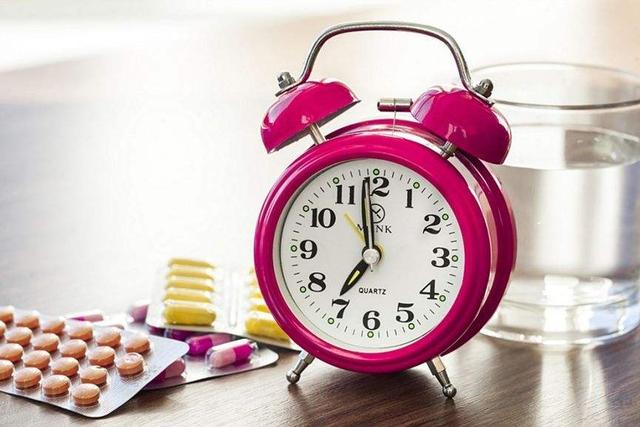心衰患者一般多久出现症状(心衰病人康复之生活小细节)
各位朋友:
大家好,现在是“每天健康三分钟”时间,我是安阳道简医院医生罗珊珊,今天给大家讲讲心衰病人康复小细节,慢性心力衰竭是严重的心血管疾病,近年来,康复治疗作为慢性心衰治疗的一个重要组成部分,管理好日常生活中的细节,才有助于疾病的康复和提高生活质量。

1.药物治疗管理心衰患者往往服用不同种类的药品,而且每种药品的服用时间不同,家人或者患者自己可以把一周的药物放在盒子中,按时服用。多数药物不能自己随便调整剂量,不要自行突然停药。复诊时带上自己所用的药物清单,医生会根据病情谨慎调整剂量。

2.每日症状观察每日称重:称重需在早晨排尿后,进食前进行,穿轻薄衣物。每天和前一天,前一周的体重情况进行比较。一周内体重的快速增长,需及时告知医生。
每日检查水肿:每天检查腿是否肿胀或身体其他部位存在水肿增长。
监测运动耐量:记录气短症状,包括没有气短、气短在稍用力后、气短在剧烈用力后、气短在静息时等。
监测夜间呼吸情况:记录夜间呼吸,包括能平卧、需要两个枕头或更多、端坐呼吸或被夜间的气短憋醒等。
注意头晕:记录头晕,包括从不头晕、站立后头晕、几乎晕厥或晕厥。如有以上症状的加重,需及时告知医生。
3.饮食、睡眠、大小便管理饮食:低盐清淡易消化饮食,少量多餐。限制钠盐摄入,每天食盐摄入量在5g以下为宜。
控制液体摄入量并记录尿量:总体原则是“量出为入,不渴不喝,喝了不渴”。急性期出量要大于入量,出入量的基本平衡,有利于控制心衰。记录每次喝水量,需注意观察每种食物的含水量,以便计算摄入量。监测尿量的方法是每天早上从固定时间开始,比如早7点,就是每日小便用量杯量一下,记一下数值,直至第二天早上7点的所有尿量,这就是24小时的尿量。

保持大便通畅:多食粗纤维食物,保持大便通畅,避免闭气用力,如果因为进食少而没有便感,可以培养每天定时去厕所坐一坐的习惯,从而形成条件反射,帮助排便。
保证充足的睡眠:早睡早起,保持愉快的心情,不要兴奋、 紧张、 生气, 以免增加心脏负担。
预防感冒:应避免太冷太热、 温差太大、 空气不好的环境。
4.合适的运动
运动的原则是:必须要动,量力而行。

有氧运动是慢性心衰病人运动康复的主要形式,可改善患者的心肺功能。心功能NYHA Ⅰ-Ⅲ级的稳定性心衰患者:可根据实际情况,选择适合自己的运动形式:散步、 太极 、 脚踏车,每周运动三到五次。
最后祝大家生活愉快、身体健康,了解更多心血管科普知识,请关注我们,咱们下期见。
【英文版】Details of life that need attention for heart failure patients in the rehabilitation process
Dear friends, nice to meet you!Now it is time for “health talk for three minutes every day”,My name is Luo Shanshan, a doctor of Anyang Daojian Hospital.
Today, I'd like to talk about the details of life that should be paid attention to in the process of rehabilitation for patients with heart failure.Chronic heart failure is a serious cardiovascular disease. In recent years, rehabilitation treatment has become an important part of the treatment of chronic heart failure. Good management of the details in daily life is conducive to the rehabilitation of the disease and improving the quality of life of patients.
Drug management
Patients with heart failure often take different kinds of drugs, and each medicine should be taken at different time.Family members or patients can put a week's medicine in the boxes and take them on time. Dosage of most drugs can't be adjusted by patients themselves, and remember don't stop the medicine suddenly.The doctor will carefully adjust the dosage according to the patient's condition, so you had better take your medication list with you when you come back.
Daily symptom observation
Weigh your weight. Weigh yourself after urination and before eating in the morning. Wear light clothes when weighing. Compare the weight with that of the day before and the previous week. The doctor should be informed of the rapid weight gain within one week.
Check for edema. Check for swelling in the legs or edema in other parts of the body every day.
Exercise tolerance should be monitored. Record the occurrence of dyspnea, the time of occurrence and the inducing factors, such as slight exertion, severe exertion or resting.
Monitor your breathing at night. Record night breathing, including whether you can sleep on your back, need two pillows or more, whether you are sitting upright or awake due to shortness of breath at night.
Pay attention to dizziness. The occurrence time, inducing factors and severity of dizziness should be recorded, such as dizziness and syncope after standing.In case of aggravation of symptoms, the doctor should be informed in time.
Diet, sleep and stool management
Pay attention to low salt, light and easy to digest diet, you are advised to take multiple meals but a small amount of each time.Sodium salt intake should be limited to less than 5 g per day.
Control fluid intake and record urine volume.
The general principle is "to measure out for in, do not drink water if you are not thirsty, and drink water until you are no longer thirsty". In the acute phase, the output is greater than the inflow, and the basic balance of the inflow and outflow is conducive to the control of heart failure. Record the amount of water you drink each time, and observe the water content of each food to calculate the water intake. The method of monitoring urine volume is to start from a fixed time every morning, such as 7:00 a.m., measure the urine volume with a measuring cup, record the value, and record all urine volume until 7:00 a.m. the next day, which is called as the 24-hour urine volume.
Keep your stool unobstructed.
Eat more crude fiber food, keep the stool unobstructed, and avoid holding your breath and exerting force. If you have no sense of defecation because of the less amount of food you have taken, you can cultivate the habit of sitting on the toilet regularly every day,thus forming a conditioned reflex to help defecation.
Get enough sleep.
Go to bed early, get up early, keep a happy mood, don't be excited, nervous, angry, so as to decrease the heart burden.
Prevent colds.
You should avoid the environment with too cold, too hot temperature, large temperature difference or bad air.
Proper exercise
The principle of exercise is that we must do exercise, but the amount and form of exercise should be decided based on our ability.
Aerobic exercise is the main form of exercise rehabilitation for patients with chronic heart failure, which can improve the cardiopulmonary function of patients. For patients with stable heart failure whose heart function is grade I - III according to New York Heart Association, they can choose their own exercise forms according to the actual situation, such as walking, Taiji, bicycle, exercise three to five times a week.
Finally, I wish you all a happy life and good health!To learn more about cardiovascular disease, please pay attention to us. See you next time.
,免责声明:本文仅代表文章作者的个人观点,与本站无关。其原创性、真实性以及文中陈述文字和内容未经本站证实,对本文以及其中全部或者部分内容文字的真实性、完整性和原创性本站不作任何保证或承诺,请读者仅作参考,并自行核实相关内容。文章投诉邮箱:anhduc.ph@yahoo.com






